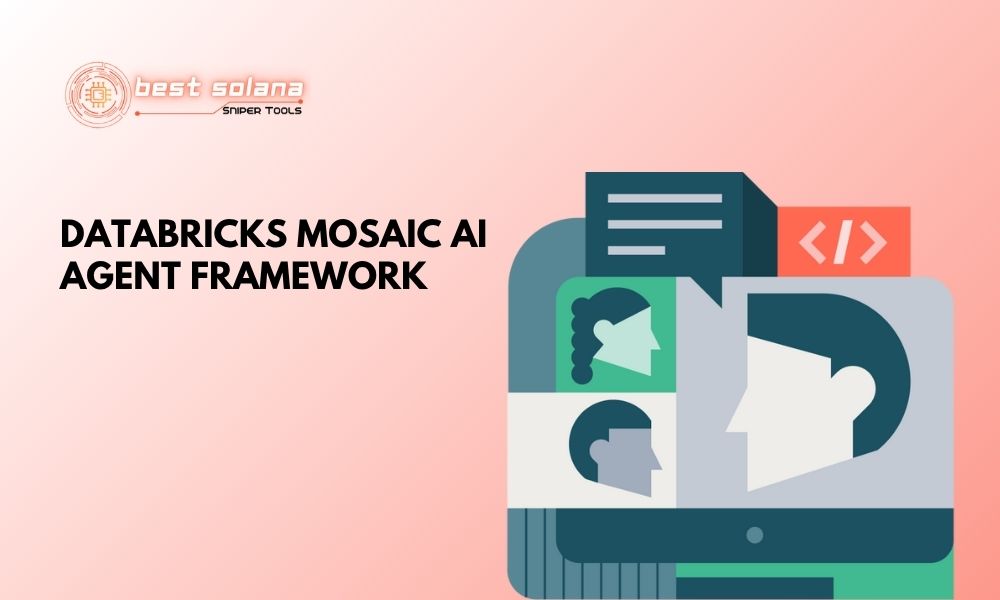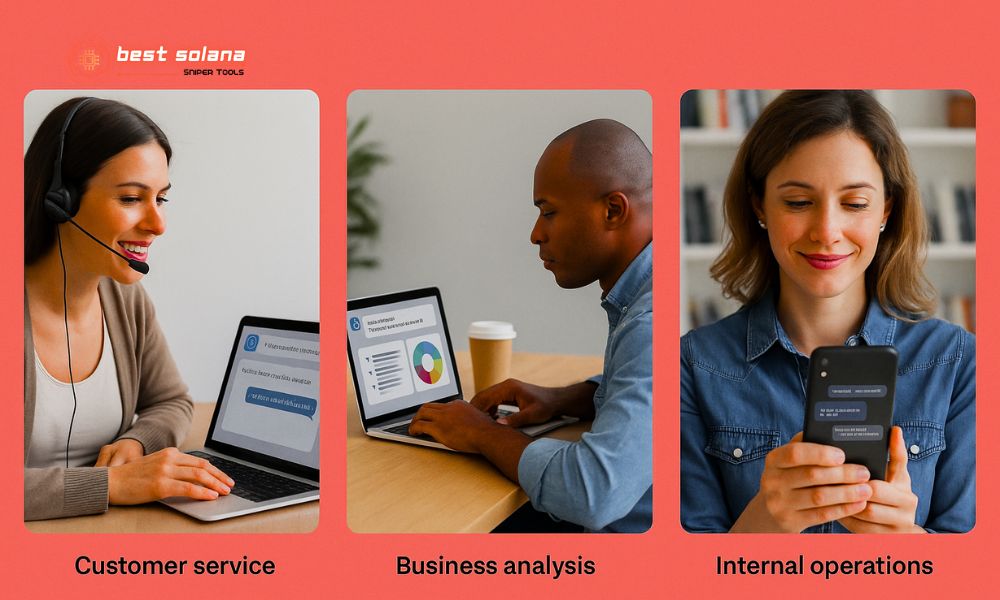The Databricks Mosaic AI agent framework is a groundbreaking toolkit that empowers developers and enterprises to build, deploy, and govern complex generative AI applications. It moves beyond simple text or image generation, enabling the creation of AI systems capable of reasoning, using tools, and interacting with proprietary data securely and effectively, delivering high-quality, reliable results for real-world problems.
What is the Databricks Mosaic AI agent framework?
In the rapidly evolving landscape of artificial intelligence (AI), standalone large language models (LLMs) are no longer sufficient to solve complex business problems. The real-world demand is for AI systems that can reason, plan, and use external tools to accomplish tasks—this is the concept of “AI agents”.
Recognizing this trend, Databricks has introduced the Databricks Mosaic AI agent framework. This is not a standalone product but a comprehensive set of tools and capabilities deeply integrated into the Databricks Data Intelligence Platform. Its goal is to provide a unified environment for building high-quality, predictable, and tightly controlled compound AI systems.
Simply put, instead of just creating a simple question-and-answer chatbot, the Databricks Mosaic AI agent framework allows you to build an “expert virtual assistant.” This assistant could autonomously query an internal database, analyze the results, call an external API to get stock prices, and finally, synthesize all that information into a complete report for the user.

The core components of the framework
The Databricks Mosaic AI agent framework is built on four key pillars, each addressing a critical aspect of AI agent development.
Tools: This is the capability that allows AI agents to interact with the world outside the language model. These tools can be Python functions, API endpoints, or SQL queries. For example, an agent might use a tool to look up product information in an inventory, check the weather, or send an email. The framework makes it easy and safe to define, deploy, and govern these tools.
Retrieval-Augmented Generation (RAG): This component is the heart of creating intelligent and trustworthy agents. RAG enables an agent to retrieve information from a proprietary knowledge base (e.g., internal documents, customer databases) before generating a response. This helps minimize model “hallucinations,” ensuring that answers are accurate, up-to-date, and grounded in the company’s actual data.
Agent Core: This is the agent’s brain, responsible for reasoning and planning. Based on the user’s request, the Agent Core decides which tools to use, in what order, and how to combine information to achieve the final goal. Databricks provides tools to optimize this process, helping the agent make smarter decisions.
Evaluation: Building an agent is one challenge, but knowing if it performs well is another. The Databricks Mosaic AI agent framework provides a powerful AI-assisted evaluation toolkit. It allows you to automatically assess the quality of your agent against criteria like accuracy, relevance, and safety. This helps development teams iterate and improve their products quickly.
Why this framework is a breakthrough
The introduction of the Databricks Mosaic AI agent framework offers significant strategic benefits for businesses serious about applying generative AI.
- Seamless integration: The framework is fully integrated into the Databricks ecosystem. This means you can leverage the full power of the platform, from Delta Lake for data storage and Unity Catalog for governance to Model Serving for deployment. Your data, models, and agent logic all reside in a single, unified environment, which simplifies architecture and enhances security.
- High quality and reliability: With a strong focus on RAG and evaluation tools, the Databricks Mosaic AI agent framework ensures that the agents you build are of higher quality. Businesses can confidently deploy AI applications that interact with customers or handle critical business processes without worrying about inaccurate responses.
- Governance and safety: With Unity Catalog, businesses have complete control over which data and tools an agent is allowed to access. Every action the agent takes is logged and auditable, ensuring compliance with security and privacy regulations. The Databricks Mosaic AI agent framework makes enterprise-grade governance a core feature.
- Openness and flexibility: The framework does not lock you into a specific language model. You can use leading open-source models, commercial models, or your own fine-tuned models, providing maximum flexibility for your development needs.
Practical applications

The Databricks Mosaic AI agent framework opens up countless application possibilities across various industries:
- Customer service: Build chatbots capable of handling complex requests like checking order statuses, processing refunds, and providing detailed technical support.
- Business analysis: Create AI assistants that can automatically gather data from multiple sources, generate reports, and answer deep analytical questions from business leaders.
- Internal operations: Develop agents that help employees look up company policies, book meetings, or automate complex approval workflows.
In conclusion, the Databricks Mosaic AI agent framework is more than just a tool; it’s a comprehensive, strategic solution. It enables businesses to move beyond simple LLMs to build intelligent, reliable agents that deeply integrate with their systems. For more insightful articles on technology and AI, be sure to follow Best Solana Sniper.
